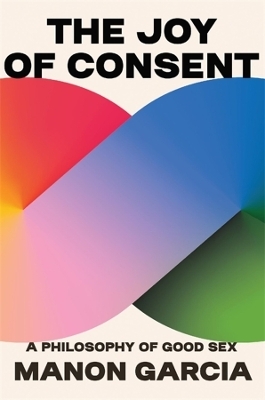
The Joy of Consent
A Philosophy of Good Sex
Seiten
2023
Harvard University Press (Verlag)
978-0-674-27913-1 (ISBN)
Harvard University Press (Verlag)
978-0-674-27913-1 (ISBN)
In the #MeToo age, US debate over licit sex has split into two camps: one insists that consent solves the problem of sexual coercion, while the other equates sexual pleasure with the patriarchal erotics of silence and mystery. Manon Garcia rejects both positions, arguing that consent is a faulty legal threshold but essential to the joy of good sex.
“From the bedroom to the classroom to the courtroom, ‘consent’ is a key term in our contemporary sexual ethics. In this timely reexamination, Manon Garcia deftly reveals the hidden complexities of consent and proposes how to reconceptualize it as a tool of liberation.”
—Amia Srinivasan, author of The Right to Sex
A feminist philosopher argues that consent is not only a highly imperfect legal threshold but also an underappreciated complement of good sex.
In the age of #MeToo, consent has become the ultimate answer to problems of sexual harassment and violence: as long as all parties agree to sex, the act is legitimate. Critics argue that consent, and the awkwardness of confirming it, rob sex of its sexiness. But that objection is answered with the charge that opposing the consent regime means defending a masculine erotics of silence and mystery, a pillar of patriarchy.
In The Joy of Consent, French philosopher Manon Garcia upends the assumptions that underlie this very American debate, reframing consent as an ally of pleasure rather than a legalistic killjoy. In doing so, she rejects conventional wisdom on all sides. As a legal norm, consent can prove rickety: consent alone doesn’t make sex licit—adults engaged in BDSM are morally and legally suspect even when they consent. And nonconsensual sex is not, as many activists insist, always rape. People often agree to sex because it is easier than the alternative, Garcia argues, challenging the simplistic equation between consent and noncoercion.
Drawing on sources rarely considered together—from Kantian ethics to kink practices—Garcia offers an alternative framework grounded in commitments to autonomy and dignity. While consent, she argues, should not be a definitive legal test, it is essential to realizing intimate desire, free from patriarchal domination. Cultivating consent makes sex sexy. By appreciating consent as the way toward an ethical sexual flourishing rather than a legal litmus test, Garcia adds a fresh voice to the struggle for freedom, equality, and security from sexist violence.
“From the bedroom to the classroom to the courtroom, ‘consent’ is a key term in our contemporary sexual ethics. In this timely reexamination, Manon Garcia deftly reveals the hidden complexities of consent and proposes how to reconceptualize it as a tool of liberation.”
—Amia Srinivasan, author of The Right to Sex
A feminist philosopher argues that consent is not only a highly imperfect legal threshold but also an underappreciated complement of good sex.
In the age of #MeToo, consent has become the ultimate answer to problems of sexual harassment and violence: as long as all parties agree to sex, the act is legitimate. Critics argue that consent, and the awkwardness of confirming it, rob sex of its sexiness. But that objection is answered with the charge that opposing the consent regime means defending a masculine erotics of silence and mystery, a pillar of patriarchy.
In The Joy of Consent, French philosopher Manon Garcia upends the assumptions that underlie this very American debate, reframing consent as an ally of pleasure rather than a legalistic killjoy. In doing so, she rejects conventional wisdom on all sides. As a legal norm, consent can prove rickety: consent alone doesn’t make sex licit—adults engaged in BDSM are morally and legally suspect even when they consent. And nonconsensual sex is not, as many activists insist, always rape. People often agree to sex because it is easier than the alternative, Garcia argues, challenging the simplistic equation between consent and noncoercion.
Drawing on sources rarely considered together—from Kantian ethics to kink practices—Garcia offers an alternative framework grounded in commitments to autonomy and dignity. While consent, she argues, should not be a definitive legal test, it is essential to realizing intimate desire, free from patriarchal domination. Cultivating consent makes sex sexy. By appreciating consent as the way toward an ethical sexual flourishing rather than a legal litmus test, Garcia adds a fresh voice to the struggle for freedom, equality, and security from sexist violence.
Manon Garcia is the author of We Are Not Born Submissive: How Patriarchy Shapes Women’s Lives. A Junior Fellow at the Harvard Society of Fellows and a junior professor at Freie Universität Berlin, she has taught at the University of Chicago and Yale University. She received the Prix des Rencontres Philosophiques de Monaco for the best book of philosophy published in France in 2022.
| Erscheinungsdatum | 27.09.2023 |
|---|---|
| Verlagsort | Cambridge, Mass |
| Sprache | englisch |
| Maße | 140 x 210 mm |
| Gewicht | 476 g |
| Themenwelt | Geisteswissenschaften ► Philosophie ► Ethik |
| Recht / Steuern ► Allgemeines / Lexika | |
| Recht / Steuern ► EU / Internationales Recht | |
| Sozialwissenschaften ► Politik / Verwaltung ► Politische Theorie | |
| Sozialwissenschaften ► Soziologie ► Gender Studies | |
| ISBN-10 | 0-674-27913-1 / 0674279131 |
| ISBN-13 | 978-0-674-27913-1 / 9780674279131 |
| Zustand | Neuware |
| Informationen gemäß Produktsicherheitsverordnung (GPSR) | |
| Haben Sie eine Frage zum Produkt? |
Mehr entdecken
aus dem Bereich
aus dem Bereich


